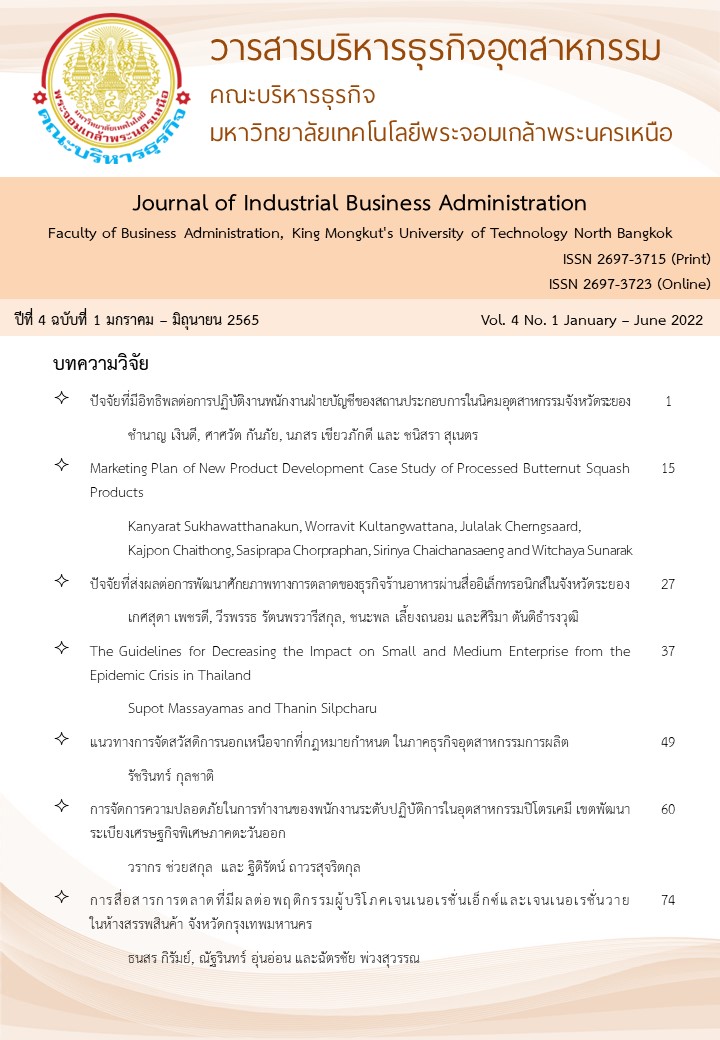Guidelines for Providing Employee Benefits Not Required by Law in The Manufacturing Industry
Keywords:
Benefits, Benefits not Required by Law, Manufacture industryAbstract
Employee benefits significantly impact employee retention, attraction, productivity, and competitive advantage. The objective of this study was to investigate guidelines for providing employee benefits not required by law in the manufacturing industry. Questionnaires were used to collect the quantitative data from 400 operational staff in the industrial business sector. Descriptive and inference statistics were used to analyze the data.
It was found that three components to providing employee benefits are not required by law in the manufacturing industry that gained the highest means arranged in the order of importance were 1) Allowances : the most important sub-item was Transportation Allowances. 2) Work/Life balance : the most important sub-item was Vacations. 3) Income Protection : the most important sub-item was Provident Fund. As for the hypothesis test, the study showed, as a whole, that operational staff in different sizes of enterprises (i.e., small, medium, and large) recognized the importance of the studied guidelines differently at the statistical significance level of 0.05
Downloads
Published
How to Cite
Issue
Section
License
Copyright (c) 2022 วารสารบริหารธุรกิจอุตสาหกรรม

This work is licensed under a Creative Commons Attribution-NonCommercial-NoDerivatives 4.0 International License.



